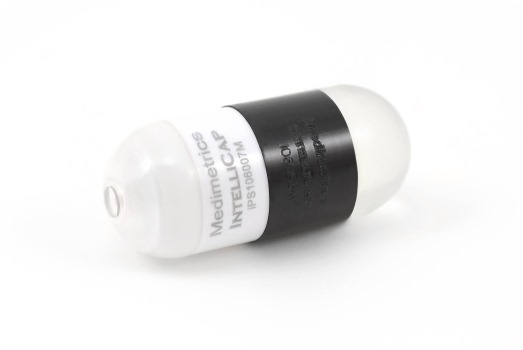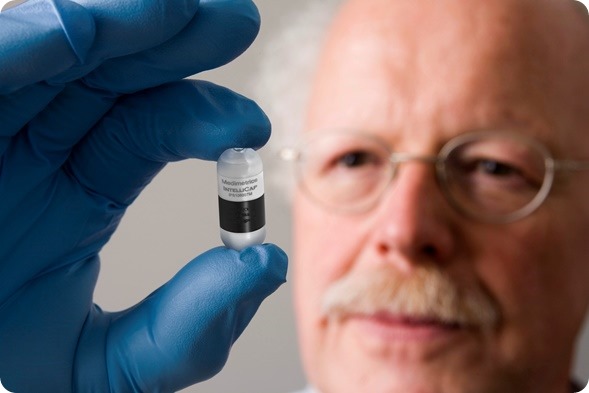Health and functional claims made for foods such as probiotics still need to prove their effectiveness ― an important part of the answer rests in our small intestines and their role in digestion, and immunity.
NIZO food research and biotech pioneer Medimetrics are bringing this a step nearer, using the latest micro-electronics. They have joined forces to create a means of sampling and mapping content from the small intestine to identify its microbiological composition, in a non-invasive way. The mapping process will provide novel insights into how certain foods and ingredients might react in our gut and so affect our health.

Using the IntelliCap system, an intelligent capsule developed by Medimetrics (a company pioneered by Philips and now based in The Netherlands, Germany and the USA), it will be possible to take samples in vivo, at targeted locations, in a non-invasive way and, importantly, away from a clinical setting. IntelliCap is already being successfully used by the pharmaceutical industry for the targeted and controlled delivery of drugs in the human gastrointestinal tract.
The small intestine is critical to health. It is where the absorption of 95% of nutrients takes place and generates signals to control our metabolism. It also contains most of our immune cells. Mounting scientific evidence shows that an imbalance in the ‘microbiota’ in our gut is linked to diseases such as obesity and diabetes.
The tiny, pill-shaped (11 x 26 mm)IntelliCap capsule is swallowed, passing through the digestive tract as a result of natural gut movement (peristalsis). The scientific collaboration with NIZO has enabled the capsule to be adapted to ‘freeze’ each sample as it is taken, avoiding deterioration. This guarantees sample stability through its journey in the intestines right up to the point of analysis. The remotely controlled capsule also measures its transit time, pH levels and temperature.

Once the capsule has left the volunteer’s body, molecular analysis of its contents will be carried out by the specialist platform pioneered by NIZO generating this ‘quantitative and representative’ map of each sample’s microbiological composition.
It is increasingly important to be able to verify functional claims of certain foods by testing the effects of nutrients, proteins, vitamins and microorganisms (probiotics). However, this has previously been an expensive and difficult process, with the invasiveness of existing methods particularly unpleasant for the volunteer.
Harro Timmerman, principal scientist at NIZO expressed his enthusiasm for what he calls a ‘revolutionary tool’. As he explained: “By assessing the way food and probiotics affect microbiota composition inside the small intestine of healthy individuals, we can better decipher the mechanisms which influence gut health, host metabolism and immunity. We may even access new markers which enable us to substantiate claims regarding the health properties of certain foods.”
Medimetrics’ scientist Christoph Wanke, the company’s clinical program leader, added: “Food scientists wanting to develop functional foods immediately see the potential of the IntelliCap technology in enabling them to apply it as a novel tool to characterize the gut microbiome.
“In addition, considering its established functionality as a targeted, oral delivery device, we can see further extensions of the technology in relation to health and disease. This offers the potential to explore novel therapeutic approaches which would enable clinicians to control the microbiological composition of the gut in the treatment of diseases like obesity and diabetes.”
During 2013, NIZO and Medimetrics plan to carry out extensive studies to explore and validate the technology before making it available to the food industry. There are strict guidelines drawn up by the European Food Safety Authority (EFSA) regarding the substantiation of a health claim in the area of gut health and immunity.